(This is a condensed version of the corresponding Japanese article, containing only the primary points made by the four keynote speakers.)
On the afternoon of September 4, 2024, the second day of the Asia Peace Conference, two public sessions were held. The second session was attended by twelve foreign policy, defense, and security experts from Japan, the United States of America, China, and the Republic of Korea who engaged in an intense, two-hour long discussion on the main theme, "How to achieve North Korea's denuclearization and peace in Northeast Asia."
The Asia Peace Conference was launched in 2020, and has continued to hold dialogues on conflict-prevention and peace-building in the region. This year's discussions confirmed the need for a multilateral agreement to prevent incidents, regular consultations to protect the peace for the future, and promotion of other types of trust-building dialogue.
While information has been shared with the international community, including with governments, private organizations, academic bodies, and the mass media, this work has resulted in little concrete effort to further discussion. However, doing nothing will mean that nothing will change. This is why the panelists from these four countries came together to find a way forward to building a stable peace in this region.
The session was moderated by Yasushi Kudo, President of The Genron NPO, who welcomed attendees with an overview of the planned discussion.
"This is a 'Peace Conference, so we need to be asking what actions should be taken," he said. "I hope that this session will focus on how to achieve peace in the region, and what the first steps we need to take are."
The session began with a representative from each of the four countries providing a keynote talk about how to address two security risks to becoming an increasingly greater threat to peace in Northeast Asia: the denuclearization of North Korea and the Taiwan Strait.
Three ideas for denuclearization of North Korea; five ideas for peace in the Taiwan Strait
First to speak was ROK Brigadier General (retired) Taekeun Heo, former Deputy Minister of Defense Policy, who began by describing the current situation surrounding North Korea's nuclear weapon and missile development programs.
"North Korea codified in the country's constitution its right to deter war and protect regional and global peace, by rapidly developing nuclear weapons to a higher level," he said. "As such, North Korea is upgrading its nuclear weapons and delivery means outside the framework of the NPT. In particular, the Kim Jong Un regime is the only one in the world that has publicly declared that its nuclear capabilities are not just for deterrence, but a means for preemptive strike against specific countries."
Heo warned that there are dangers to assuming denuclearization will fail when he said, "If we conclude that denuclearization is impossible, it means that the international community has officially recognized North Korea as a nuclear weapon state. In this case, the threat...will be at a level that we cannot easily manage."
In addition, Heo worries that recognizing North Korea's status as a nuclear state, whether official or otherwise, could influence the nuclear weapon and security policies of other non-nuclear states in the region, which could, "completely transform the regional and international security landscape into the one which will give huge negative impact to all of us."
Heo offered three suggestions on how to approach denuclearization, one of which has yet to be implemented. First, aim for true CVID (complete, verifiable, and irreversible) denuclearization through diplomatic efforts to "reopen the door for dialogue with North Korea"; second, continue with multilateral sanctions and create a new framework for continuing them; and third, begin a new effort to encourage internal change in North Korea, the option that Heo believes the Kim Jong Un regime "fears the most." Heo believes that implementing all three will be effective.
"I'm confident that North Korean denuclearization will be more likely and accelerated than it is now when: diplomatic dialogue conveys the international community's clear and decisive commitment to denuclearization; when various sanctions weaken the resilience of the Kim regime; and when North Koreans themselves become aware of the problems of the regime and the new opportunities they can gain."
Heo also expressed his opinion about Taiwan.
"I think the current security concerns have arisen as a result of significant changes in the balance of military power between the US and China in the Western Pacific region over the past 20 years while the US was focused on the War on Terror," he said, and proposed five measures to be taken for successful crisis management, and to achieve peace and stability across the Taiwan Strait.
First, Heo believes that the status quo, thus far managed by the One China policy and the Taiwan Relations Act, should be protected. Next, there needs to be a restoration of the military power balance that has changed between the US and China over the last two decades. Third, all parties must have a shared understanding of the potential regional and international impact of a conflict in the Taiwan Strait. Fourth, a mechanism needs to be established to allow for cross-border cooperation in managing crises in the Taiwan Strait. Finally, Heo proposed that a hotline be established between the US and China to prevent any unintentional incidents.
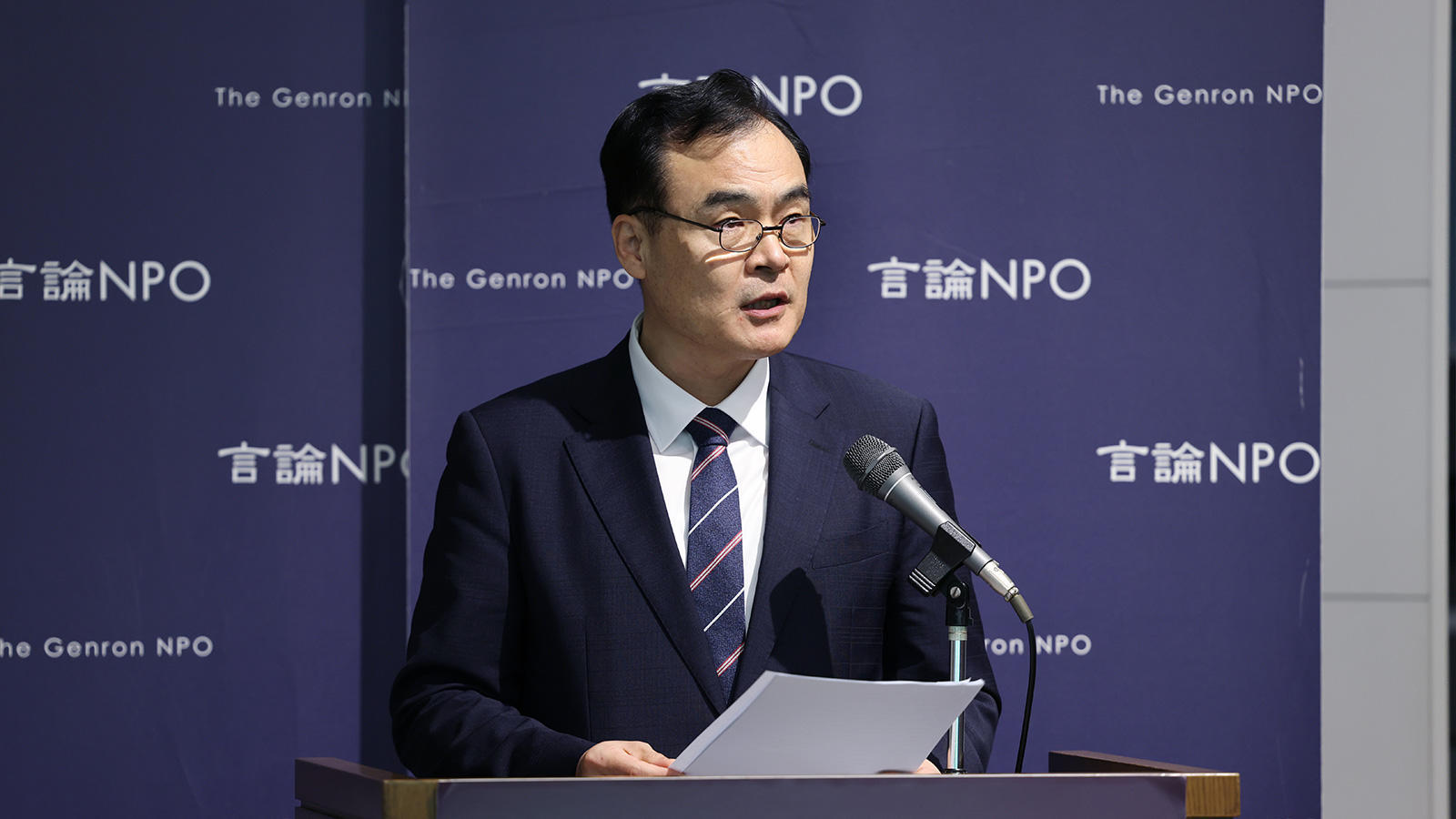
Human agency ? vision, competence, and wisdom of leaders ? the deciding factor in achieving peace
Next to speak was Daniel Russel, former US Assistant Secretary of State and Vice President of the Asia Society Policy Institute.
"Sustaining peace and stability in Northeast Asia really hinge on effectively managing the two highest risk hotspots in North Korea and the Taiwan Strait," Russel began. "Managing these two challenges depends significantly on Washington and Beijing's ability to limit to contain, to control their strategic rivalry in order to coordinate their policies."
Russel believes that the dilemma arises from "the competing interests and the opposing strategic calculations" and noted that the two sides ? the US, the ROK, and Japan on one side with China and Russia on the other ? are increasingly at odds over North Korea policy, and that Pyongyang is exploiting this and the shift away from international cooperation to its advantage. Russel continued by pointing out that how North Korea has acted over the last eight years.
"It has developed a nuclear triad ? land-based, submarine-launched, and potentially air-delivered nuclear weapons. Its missile arsenal has expanded to include intercontinental ballistic missiles capable of reaching the US mainland, and hypersonic missiles designed to evade military missile defense. North Korea may have miniaturized nuclear warheads, enhancing its second-strike capability. It conducts relentless cyber-attacks. And it's made significant policy shifts, amending the Constitution to commit to advancing its nuclear program, declaring South Korea an enemy state, renouncing unification, threatening the use of tactical nuclear weapons."
Russel believes that the optimal solution is one that may not be currently possible.
"Until and unless Beijing, Washington, Seoul, and Tokyo are prepared to make common cause, the threat from North Korea is certain to grow. But the likelihood of that strategic cooperation, especially between the US and China, is low. This is both due to the US-China strategic rivalry, but also because China has a vested interest in maintaining North Korea as a buffer state."
For this reason, a different strategy will need to be followed for the foreseeable future.
"The sensible policy for the US, the ROK and Japan is what I would call the 4D words: defense, deterrence, denial, diplomacy. Defense means ensuring that we can block and defeat attacks from North Korea. Deterrence means convincing Kim Jong Un that any aggression will fail and will ultimately lead to the end of his regime. Denial means depriving North Korea of access to foreign currency, foreign goods, to Western technology, to diplomatic acceptance, as long as it remains in violation of international law. Diplomacy means first sustaining an international coalition to effectively enforce sanctions."
That being said, Russel also emphasized that the parties must leave the door open to talks with North Korea "if and when it shows any readiness to talk."
Next, Russel explained the US position on the status of Taiwan.
"Taiwan's status should be resolved peacefully by and to the satisfaction of the people on both sides of the Taiwan Strait," he said. "Now, admittedly, the prospect of a mutually satisfactory and peaceful resolution seems a long way off. But that just means that patience is called for. In the meantime, though, tensions are mounting, along with coercive pressure and worrisome military signaling.
Russel further explained that diplomatic goals should include convincing China that the possibility of peaceful unification still exists, and that Taiwan is not "near the brink" of declaring independence.
Russel closed by touching upon the overall power balance in Northeast Asia, increased tensions in the region, and changing geopolitical dynamics.
"Yes, we need military preparedness and diplomacy. Yes, we need economic and technological resilience, and yes, we need multilateral forums and regional institutions. But at the end of the day, the decisive factor is human agency, the ability of leaders with the vision and competence to make wise decisions that will foster a stable, peaceful, and cooperative regional environment."
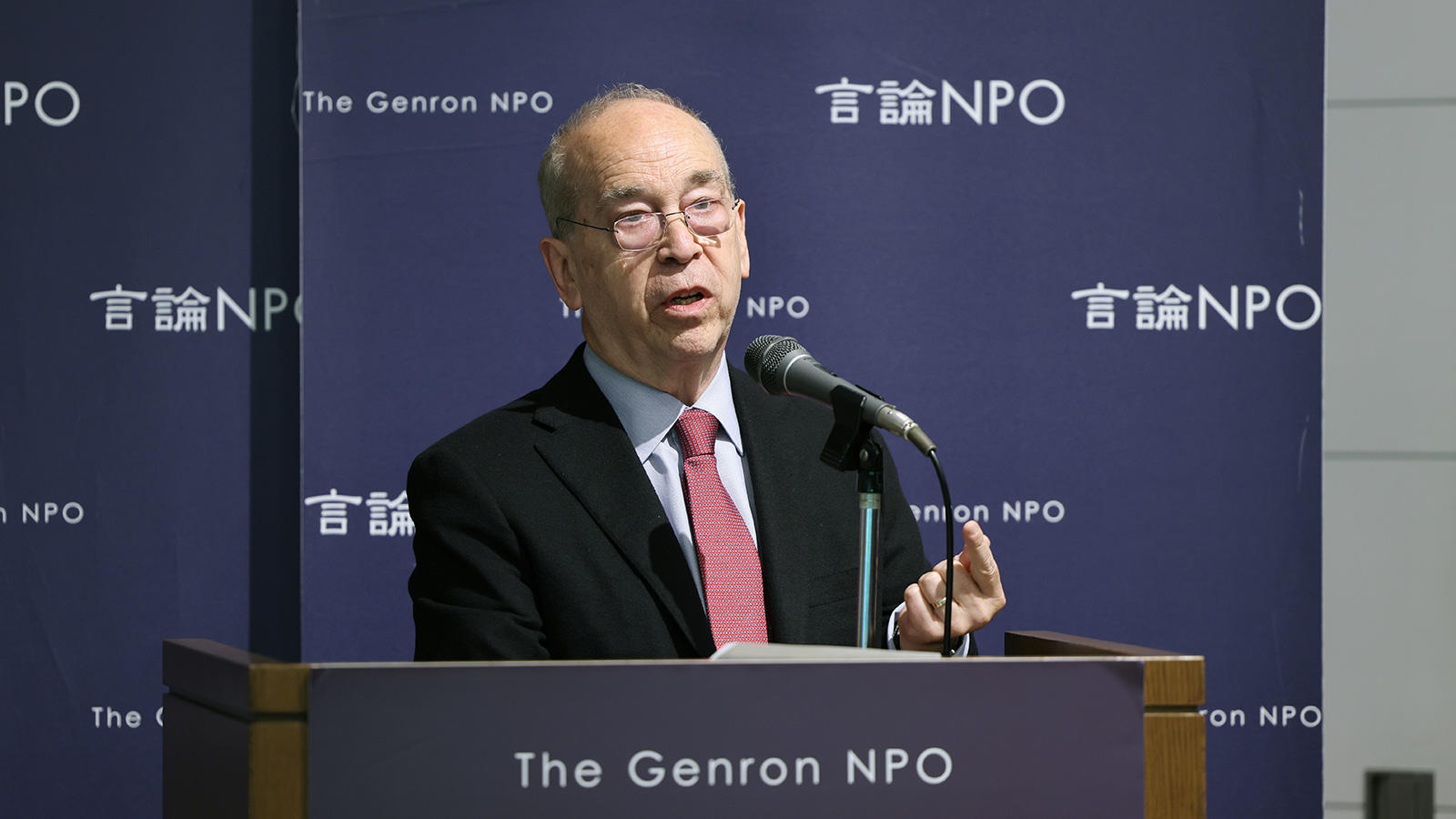
Denuclearization of North Korea requires "principled re-engagement"
Third to speak was Qingguo Jia, professor and former Dean of the School of International Studies at Peking University. He began by addressing the deteriorating situation on the Korean Peninsula, pointing out that international cooperation to denuclearize North Korea is weakening while military collaboration between Russia and North Korea is increasing.
"More and more people, in South Korea especially and also in Japan to some extent, are demanding to own their own nuclear weapons," he added. "And the American diplomatic and policy community is seriously considering the possibility of deploying tactical nuclear weapons on the peninsula."
Jia reviewed the proposals that have been made to address the problem thus far.
"Broadly speaking, there are two kinds of approaches. One is demanding more effort to put pressure on North Korea. The second approach is calling for restraint, believing that we should wait for a more opportune moment to deal with it."
However, according to Jia, neither of these solutions is ideal.
"I think putting pressure on North Korea in the hopes that this can solve the problem is unrealistic. We have put a lot of pressure on them already, but it hasn't produced a desirable result. If North Korea is put into a corner, who knows what it can do?" he said. "On the other hand, the constrained approach is too passive. Waiting cannot solve the problem. As North Korea develops its nuclear weapons and nobody tries to stop it, other things that are undesirable can happen. Such as development of nuclear weapons on the part of South Korea, and deployment of technical nuclear weapons in the Korean Peninsula by the US, and also the weakening or even collapse of the non-proliferation regime of the world. Therefore, I believe that we need a more realistic, more pragmatic, and more proactive measure to cope with this kind of situation."
Considering the issues with the attempts made so far, Jia suggested a new approach that he described as "principled re-engagement."
"'Principled' means that we should adhere to denuclearization as our goal, and inclusive cooperation as the means of addressing the problem. This is the shared stake of all countries in the region and the world. Nuclear proliferation threatens our survival. Especially when they are in the ends of a highly unpredictable regime."
Jia emphasized the inclusiveness is the only way of achieving the desired goal, noting that some have suggested that China's involvement was unnecessary.
"I think during the early years of the Biden administration, some people entertained the idea that we can deal with this problem without China's participation. But this idea I believe is both wrong and also dangerous," he warned.
"'Re-engagement' means that the main stakeholders should re-engage and communicate with each other more," Jia continued. "First, China and the US should re-engage and increase communication on this issue. China and the US will realize that effective management of the Korean nuclear issue is our shared stake, our shared interest. China on one hand, and Japan and South Korea on the other, should also re-engage on this issue. Finally, the four principal parties or stakeholders, China, US, Japan, and South Korea should re-engage with North Korea on the one hand, they should tell North Korea that they are determined to push for denuclearization and that they take it seriously. They should also let North Korea know that if they can abandon their nuclear program, they are willing to take measures to help solve North Korea's security and development problem."
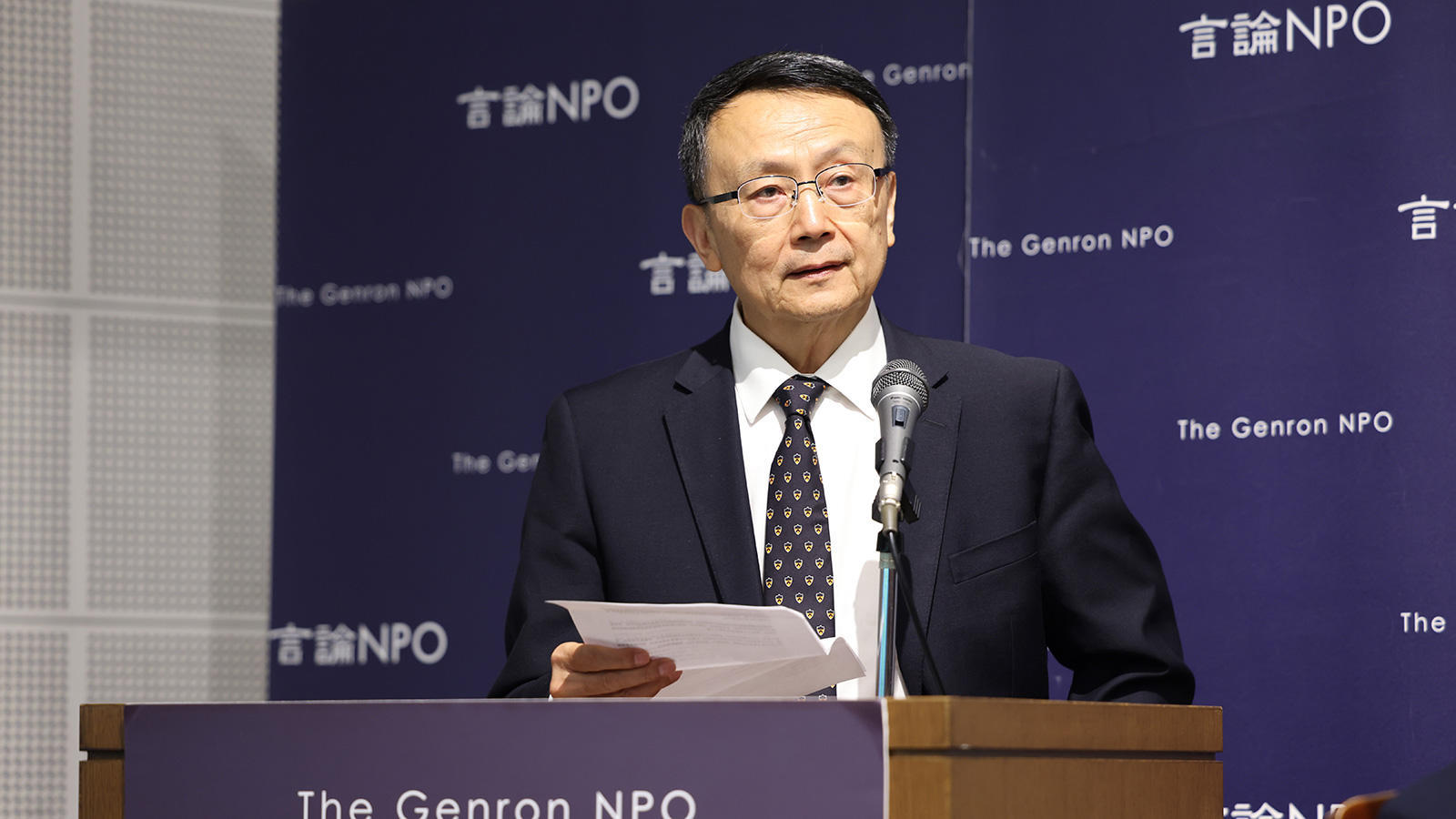
Continued discussion needed to find ways of avoiding conflict
The fourth and final keynote speaker was Yuji Miyamoto, former Director-General for Arms Control and Scientific Affairs at Japan's Ministry of Foreign Affairs, former Ambassador to both Myanmar and the People's Republic of China, and Chairman of the Miyamoto Institute of Asian Research. Miyamoto has also served as an advisory board member to Genron NPO for many years.
"The security situation in Northeast Asia is steadily deteriorating...there is a very high possibility that it will lead to conflict," he said to remind the gathering of the importance of the day's discussions. "And this will result in the peace and stability of the region being destroyed. The price of such an eventuality is too high. So, we need to stop that here and deliberate until we find another way."
As a first step, Miyamoto believes that the four countries need to confirm their national policies regarding North Korean denuclearization, and that Russia should be encouraged to join the effort in pressuring North Korea to act. Russia remains a problem, however.
"Russia is looking to protect its own interests in Europe by strengthening its military ties with North Korea, and thereby aggravating division and conflict in East Asia in a way that weakens the power of the United States," he predicted, suggesting that a path forward that does not include Russia should be found.
"Even without Russia's cooperation on North Korea, the US, Japan, the ROK, and China need to contemplate a new move. Our success will depend on whether we can come to a common agreement, and on whether we can find a common position. Any effort will fail without such an agreement," Miyamoto said, before referring to the opinion survey conducted in preparation for the Conference.
"The survey this time also shows that many people consider the possession of nuclear weapons by North Korea to be a fait accompli. But even if that is true, our four countries should have a common understanding of the issues and common goals."
Miyamoto believes that the first step in responding to the North Korean nuclear threat should be mutual assurance. China and Russia should oppose any pre-emptive strike on the part of North Korea, and the US and the ROK should assure North Korea that they will not launch a pre-emptive attack with conventional arms. Second, Miyamoto said that there is also the issue of how US extended nuclear deterrence will guarantee protection of Japan and the ROK. If that deterrence fails, the non-proliferation framework of East Asia could collapse, and both China and Russia would be pulled into the resultant fray.
Miyamoto ended his comments on North Korea when he called for more diplomatic efforts to be made.
"Denuclearization is not impossible. But we cannot only pressure North Korea on this issue, we must also consider guaranteeing their security."
Miyamoto turned to the post-WWII history of the region before emphasizing that the issue regarding the peace and stability of the Taiwan Strait is an issue connected to the relationship between the US and China, and that all parties need to be "prepared to compromise."
He called on the two countries to continue with the fundamental policy of maintaining the status quo, while simultaneously moving forward with building a better bilateral relationship by compromising in areas of strategic competition and regarding China's "core interests."
Miyamoto believes that the diplomatic approach, i.e., "the art of compromise," can also be applied to resolving issues in the South China Sea, and continued discussion between the two countries may find a path forward that avoids conflict.
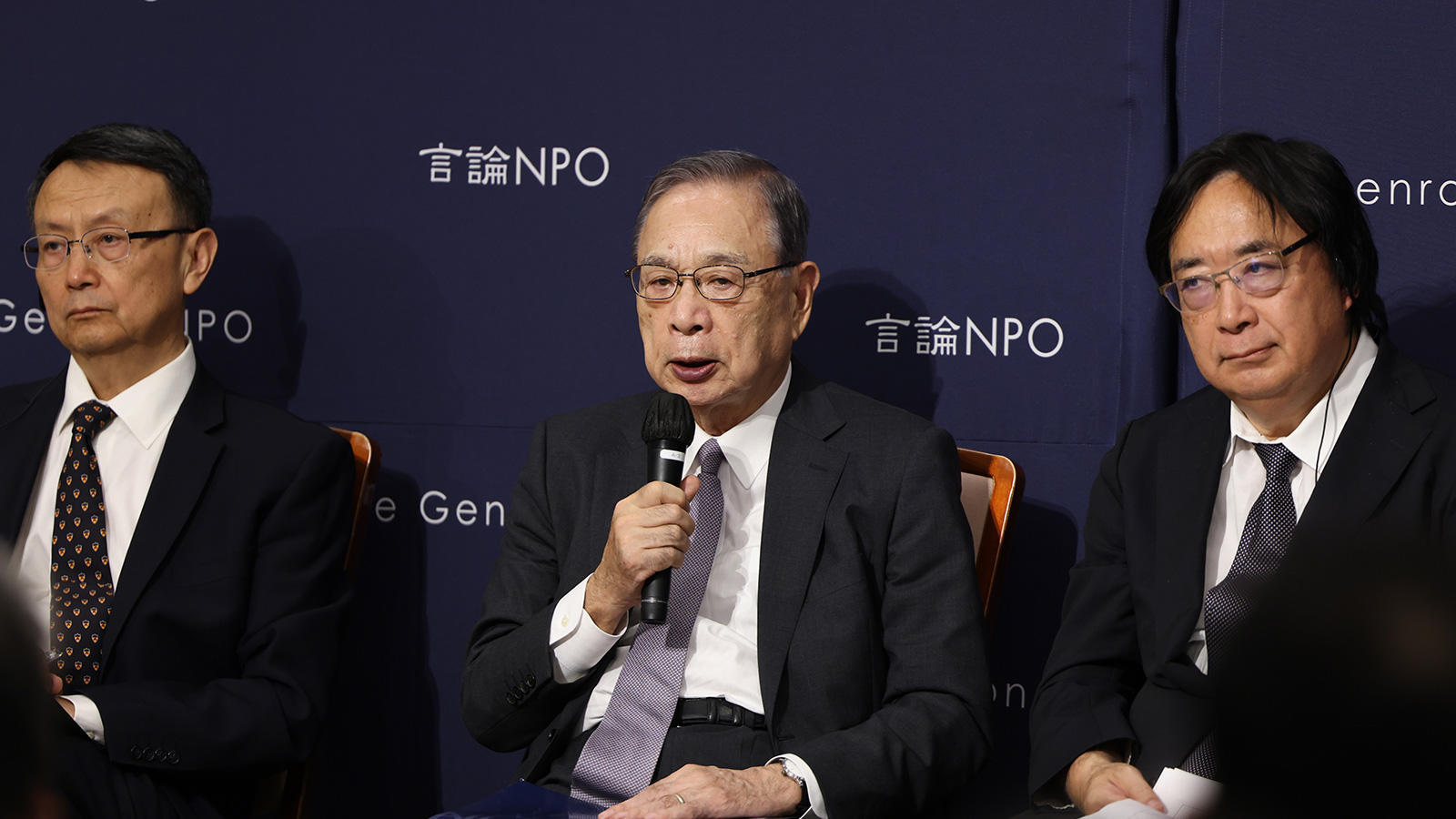
Discussion
The second half of the session had all the panelists engaged in a rich discussion about how to bring about peace in Northeast Asia. After the discussion, Yasushi Kudo provided some closing remarks for the session.
"Daniel Russel suggested that human agency is the deciding factor in the issues we discussed today, and that what we need is wise leaders with a vision," Kudo said. "If the political situation gets out of control, it is the responsibility of the experts participating in our dialogue today to do something about it. We must make the effort to engage in real discourse in our own countries, to promote discussion aimed at solving these problems."
With this, the two-hour long session came to a close.
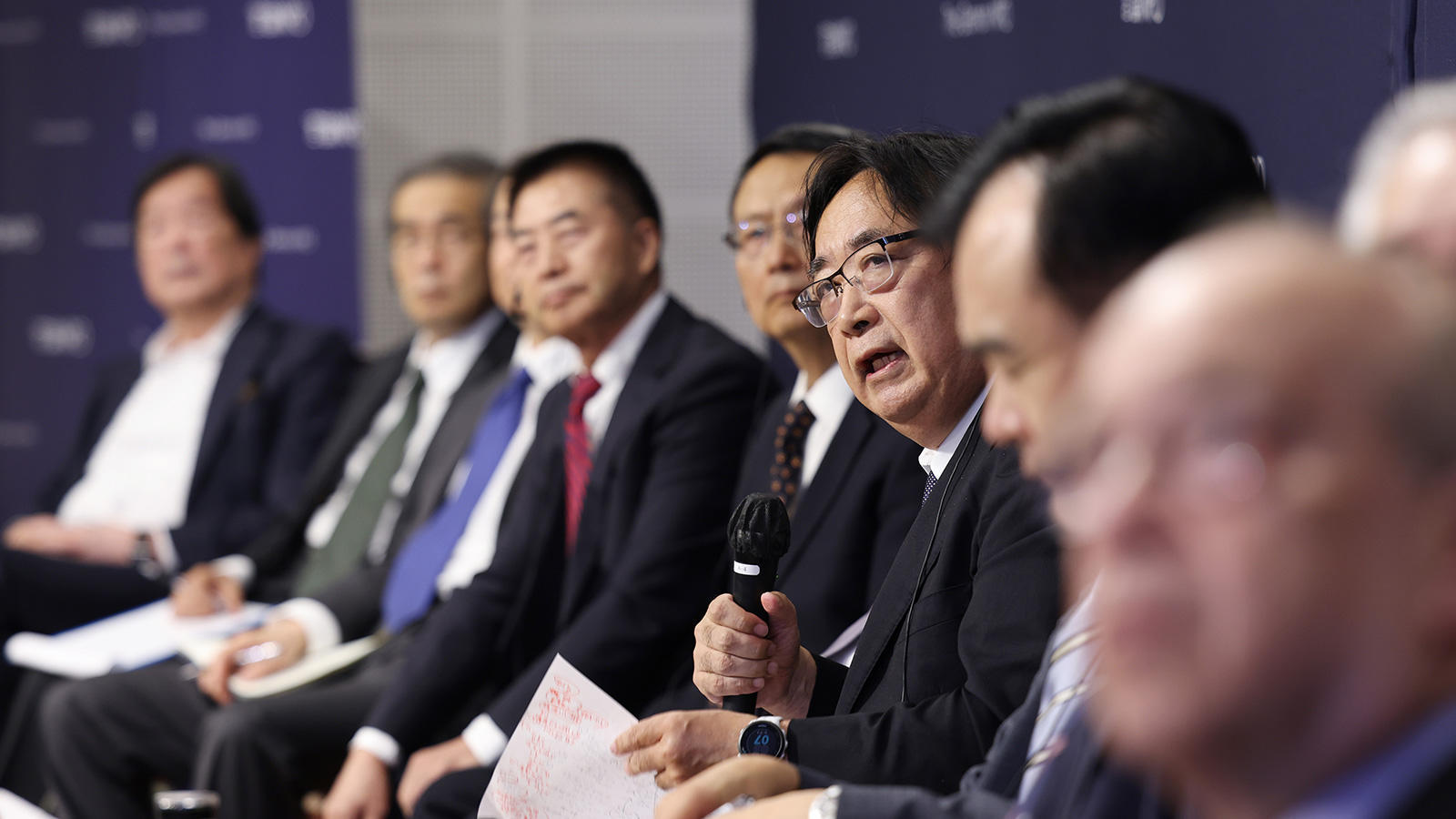
Post a comment